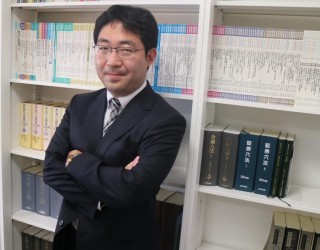Loading
Search
▼ Kenichi Yasuda Navigates International Business And Labor Law For Foreigners
- Category:Other
TOKYO - In today's changing economy and society, legal issues are becoming more diverse and complex. This creates a greater need for the services of lawyers such as Kenichi Yasuda of Dojima Law Office. Established in in Osaka in 1957, Dojima Law Office opened its Tokyo office in 2010 to better serve its clients' diverse needs.
Yasuda, who was born in Nara, currently works in the Tokyo office. A graduate of Kyoto University, Faculty of Law and New York University Law School, he is admitted both in Japan and to the New York state bar and registered as a New York attorney. He handles international business law, corporate and commercial law, labor law, general civil cases, bankruptcy and administrative law.
“Most of our work is domestic,” he says in fluent English. “I deal with international business and labor law as well as other broad legal issues, and I want to expand that area and create an international network so that I can best help foreign companies with offices in Japan.”
Yasuda says that in recent years there has been an increase in labor law cases. “It usually involves disputes over dismissals. It may be Japanese companies against foreign employees or foreign companies against Japanese employees and even foreign companies against foreign employees.”
A company may want to fire some employees but the regulations are quite strict, so they consult with me how to legally do this. In other cases, employees consult with him, both in Japanese and English, on what to do if they feel they have been wrongfully and what their options are.
Yasuda’s experience enables him to see the perspective from both sides.
“Before the internet era, employees didn’t know their rights or how to fight unjust dismissals, art even if they could,” Yasuda says. “Today, employees can easily find out about labor laws but they are complicated and often differ case but case.”
Labor laws in Japan are totally different from U.S., Yasuda says. “In Japan, it is still quite difficult to fire employees in Japan. Sometimes foreign employers or their headquarters abroad do not know the rules and this causes trouble in trying to dismiss employees.”
His advice to any employee who is dismissed is: Don’t sign anything. If you do, it is quite hard to take your case to court. “If you do so, you can’t say you signed a document and then claim the agreement is void.”
Yasuda also says some employee might not be aware that labor protection applies to non-renewal of contracts. There are cases where non-renewal of a contract may be considered illegal.
Some companies use psychological methods to force out employees. Yasuda is familiar with those tactics and points out that in this era of power harassment, such tactics can also be illegal.
For example, a company might transfer an employee to another city, though the employee doesn’t want to go. Yasuda advises such employees to first look at their contract. “Companies can’t always order employees to move to work. Even if it can order you, the order can be void, if there is suspicious motivation, or if there is no necessity, and if you have to have to incur hardship which exceeds the usual level.”
However, there are still many gray areas, especially with the growing number of non-permanent employees. Labor laws can be just as confusing for companies as well as employees.
So what should either side do if they need a lawyer? “I recommend coming in for a chat,” said Yasuda. “Trust is important. So you must meet them. No lawyer is suitable for every situation. I get clients now through referral and I have a lot of repeat clients. Having a good track record is important for potential new clients.”
Currently, at Yasuda’s company, about 50% of business is international M&A and 40% labor law, both domestic and international. “I can handle general corporate matters for foreign companies. mid-sized or small firms that want to hire just one lawyer.”
In business law, Yasuda points out that the mindset of Japanese business executives is different from their counterparts in the U.S. and European companies. “Japanese lawyers who understand Japanese culture and have experience abroad can assist foreign companies in Japan and especially where M&As are involved.”
Yasuda says future areas for lawyers will involve digital and environmental law. “There will be a lot of international issues to deal with.” He currently helps represent a group of Fukushima nuclear evacuees on a voluntary basis.
For many people who have never used a lawyer, their image of lawyers often comes from TV and movies. Is that good or bad? “Actually, most dramas have a good understanding of lawyers because they use lawyers as consultants even if it is fictional.”
So if you need a lawyer, Yasuda invites you to call on him or send him an email (ken-yasuda@dojima.gr.jp). “My strengths are international skills and experience in many kinds of cases,” he says.
- February 3, 2020
- Comment (0)
- Trackback(0)


